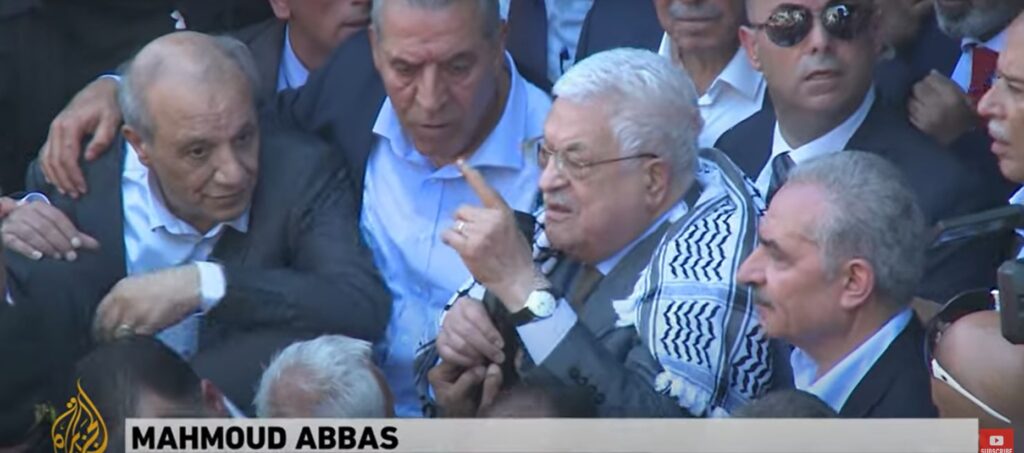PA officials report that Abbas is considering ways to reunite the fractured Fatah movement, under the assumption that the PA will eventually play a role in governing Gaza, despite Israeli Prime Minister Netanyahu’s current opposition to this idea.
Behind the scenes, Jordan, Egypt, and the United Arab Emirates are encouraging Abbas to promote internal reconciliation within Fatah as soon as possible.
They believe that such a move would bolster the PA’s standing both on the Palestinian street and in the eyes of the international community.
Abbas faces pressure to reconcile with his former political enemies, Muhammad Dahlan and Nasser Al-Kidwa, the latter being Yasser Arafat’s nephew and a former foreign minister, both of whom were expelled from Fatah.
The PA chairman is also being urged to draw closer to other senior Fatah figures, including Tawfik Al-Tirawi, Jibril Rajoub, and Mahmoud Al-Aloul.
Sources within Fatah indicate that amid the leadership succession battle, Hussein al-Sheikh, Secretary-General of the PLO’s Executive Committee, and Majed Faraj, the head of general intelligence, have managed to convince Abbas to remove key Fatah leaders they claim were undermining his leadership. This has made al-Sheikh and Faraj some of Abbas’s closest advisors.
According to a senior Fatah official, these internal conflicts have significantly weakened the movement and strengthened Hamas.
Therefore, Abbas must pursue internal reconciliation to reinforce both Fatah and the PA.
On September 3, the “Rai Alywom” newspaper reported that Jordan and Egypt are demanding Abbas dissolve the current government, led by Dr. Muhammad Moustafa, and establish a new one.
The current administration is deemed unacceptable to the international community, which has hindered the PA’s ability to secure financial aid from European countries and the Biden administration.
Palestinian Prime Minister Muhammad Moustafa is viewed as a loyal servant to Abbas but is tainted by serious corruption allegations.
His appointment contradicts previous understandings between Abbas and the Biden administration, which called for a government committed to fighting terrorism, corruption, and nepotism.
Consequently, many countries, particularly the U.S., have refused to transfer funds to the PA.
Without a government acceptable to the international community, Abbas may find it challenging to maneuver politically.
Jordan is also pressing Abbas to resolve the leadership succession issue within Fatah, either by appointing a deputy or establishing a mechanism for selecting his successor, to avoid a leadership vacuum once he steps down.
Despite being 88 years old, Abbas has expressed confidence that he can continue in his role for a few more years.
He argues that addressing the succession issue prematurely could intensify the internal power struggle.
Fatah sources reveal that Abbas has initiated preliminary talks for reconciliation with Muhammad Dahlan, his chief political adversary whom he expelled from Fatah in 2011.
Dahlan, who currently serves as an advisor to UAE President Sheikh Mohammed bin Zayed, was even accused by Abbas of being involved in Yasser Arafat’s death.
If successful, this move could mark a significant breakthrough in the reconciliation process.
However, the deep mistrust between Abbas and Dahlan, coupled with Dahlan’s stringent conditions, leads many within Fatah to believe that the chances of reconciliation remain slim at this time.




